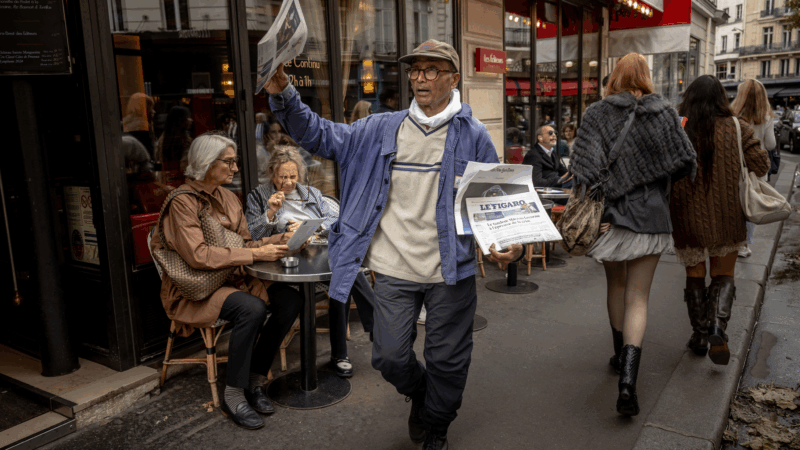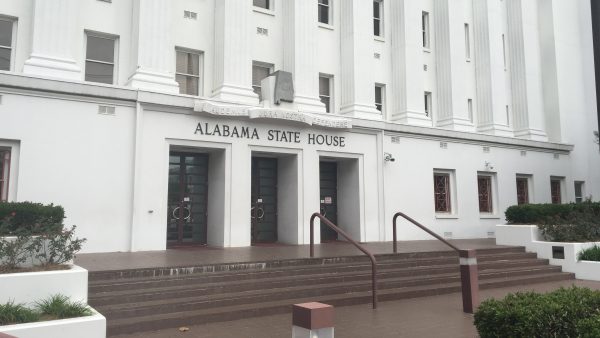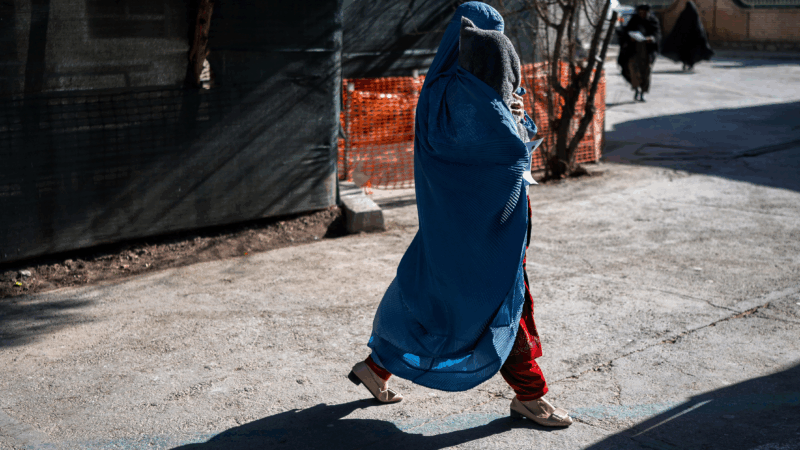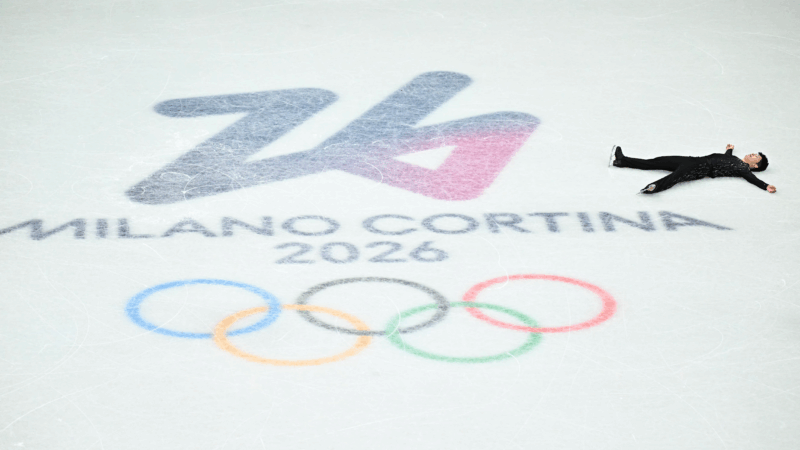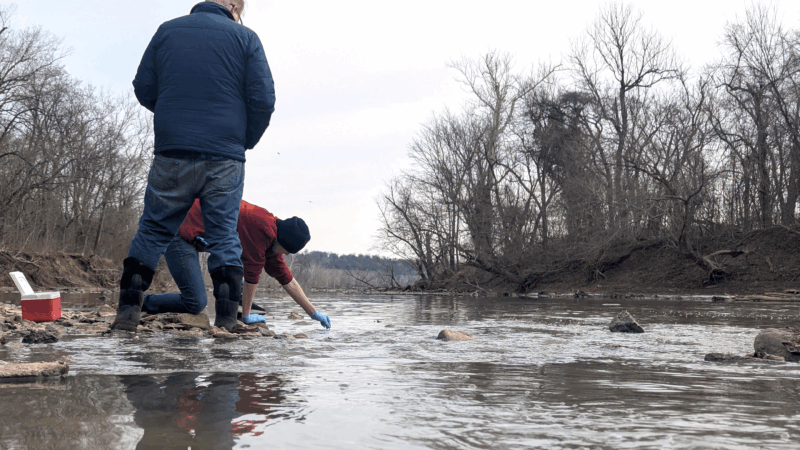Birmingham’s Civil Rights History Front And Center At Rally For George Floyd
Kelly Ingram Park in downtown Birmingham swelled with people, signs and chants Sunday afternoon for what organizers called a rally for justice and peace in response to the death of George Floyd, who died after being arrested by police in Minneapolis on Monday. The rally, sponsored by the Birmingham mayor’s office and the Birmingham Civil Rights Institute, came one day after a similar protest and march in Birmingham and Hoover.
Speakers at Sunday’s gathering, which included clergy from a variety of faiths, referenced Birmingham’s history of nonviolent protest during the civil rights movement. They also referenced many names of black men and women who died after incidents with law enforcement.
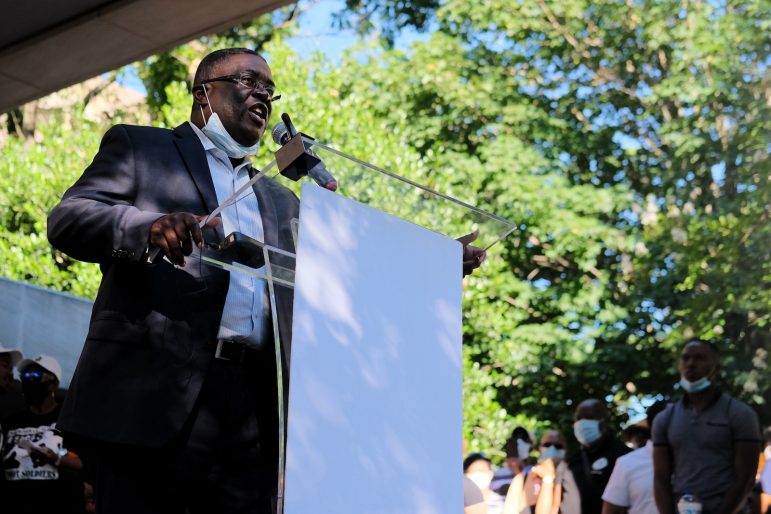
Eli Benton Cohen,WBHM
Rev. Arthur Price of 16th Street Baptist Church in Birmingham addresses the crowd. The church was the site of a racist bombing that killed four girls in September 1963.
“You ought to be angry about what happened last week,” said Rev. Arthur Price, the pastor of the 16th Baptist Church in Birmingham. “But the question is what are you going to do about it?”
Price told the crowd they should turn anger into advocacy by voting and pushing elected leaders for changes to policing practices. Other speakers called on people to patronize black businesses. Some spoke of whites who seemed indifferent to what some in the African-American community have experienced.
“Dear White America, I ask you who are you?” activist T. Marie King said. “Are you willing to look at your life and be responsible for it and begin to change?”
Several speakers urged the crowd to resist responding with violence as has been seen in many cities across the country. Both Democratic Senator Doug Jones and Birmingham Mayor Randall Woodfin noted Birmingham’s progress since the civil rights era.
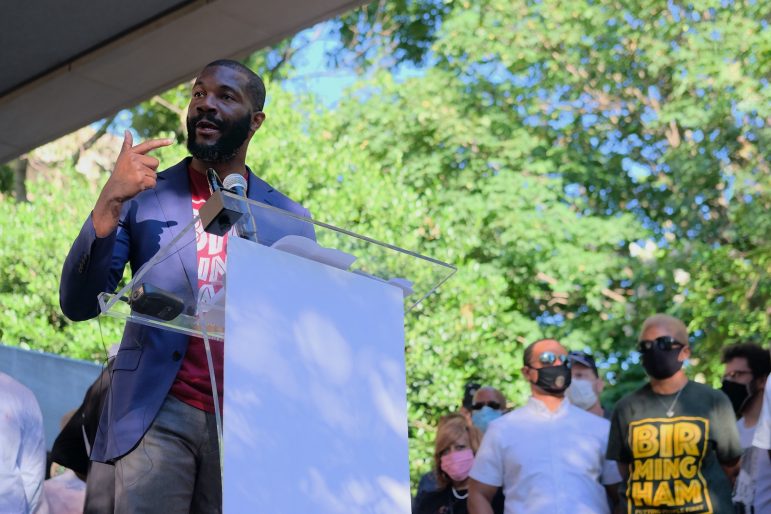
Eli Benton Cohen,WBHM
Birmingham Mayor Randall Woodfin
“To say that we as a people are not better off today than we were 50 years ago … that dismisses the sacrifices of the foot soldiers that join us today,” Woodfin said.
Woofin called Birmingham the “blueprint” for a nation divided by race, adding “the enemy is not each other.”
Jackie Freeman, who traveled from Tuscumbia, Ala., for Saturday’s protest and Sunday’s rally, said as an African American mother, some of the police violence against black men captured on video made her think of her two sons. She said she’s thinking more carefully about how she spends her money and how she spends her time.
“You can’t just sit back and Facebook protest and expect things to change,” Freeman said.
Auburn University student Allison Sharp expressed similar feelings about the limits of social media posts. Sharp, who is white, said this was the first rally she had attended.
“I definitely learned the power of the dollar, “Sharp said. “I never really thought to shop specifically at black-owned business. I’ve just thought about donating to nonprofits.”
As Sharp left with a group of friends, they were thinking of black-owned restaurants where they could pick up dinner.
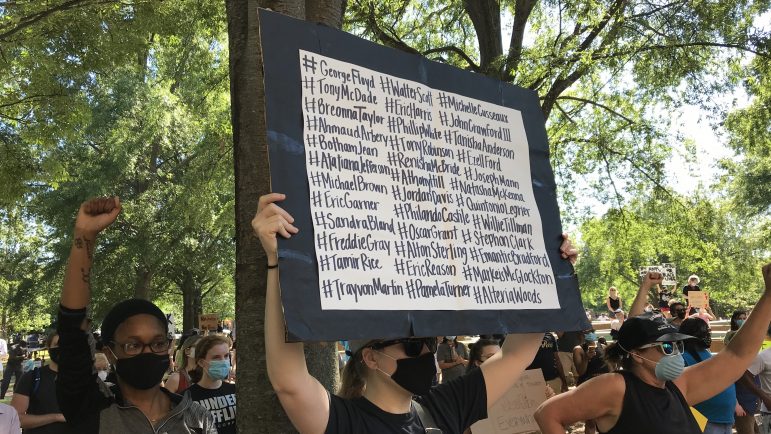
The economy slowed in the last 3 months of the year — but was still solid in 2025
The U.S. economy grew 2.2% in 2025, a modest slowdown from 2.4% the previous year. GDP gains were fueled by solid consumer spending and business investment.
Ali Akbar, who’s sold newspapers on the streets of Paris for 50 years, is now a knight
For decades, Ali Akbar has sold papers on the Left Bank of Paris. Last month, France gave the beloved 73-year-old immigrant from Pakistan one of its highest honors — and his neighborhood is cheering.
Bill limiting environmental regulations goes to the governor’s desk
President Trump has taken steps to roll back environmental regulations. Some of that same action is taking place in statehouses, including Alabama's. Lawmakers gave final passage this week to a bill that would ban the state from enacting environmental rules more stringent than those at the federal level. That's where we start our weekly legislative update with Todd Stacy, host of Capitol Journal on Alabama Public Television.
For years the Taliban told women to cover up in public. Now they’re cracking down
At hospitals, at seminaries and on buses, the Taliban is stepping up enforcement of rules on women's dress in the city of Herat.
What I learned watching every sport at the Winter Olympics
Sit down with pop culture critic Linda Holmes as she watches the 2026 Winter Games. She is exhausted by cross-country, says "ow ow ow" during moguls, and makes the case, once and for all, for curling.
Scientists worry about lasting damage from Potomac sewage spill
Drinking water around the District of Columbia hasn't been contaminated. But scientists say the environmental damage could be severe.

